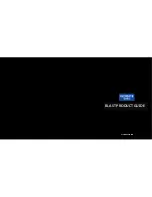
ENG-6
POWER SUPPLY
If you would like, the electrical power supply can be used to save the batteries. Make sure that the unit is
unplugged from the wall outlet before inserting the batteries.
USING THE DC POWER SUPPLY
Batteries (not included)
Open the battery compartment and insert 8 R14 batteries with respect to the "+" and "-" polarity indications
in the compartment.
Important:
When replacing the batteries, make sure you dispose of the old batteries in accordance with applicable
regulations. They should be disposed of in a location specifically designated for that purpose so they can
be recycled safely and without posing any risk for the environment. Do not burn or bury them.
Incorrect use of the batteries may result in electrolyte leakage having a corrosive effect in the
compartment.
Do not mix different types of batteries: do not use alkaline batteries with saline batteries, for example.
only use batteries of the type recommended by the manufacturer.
Do not mix old and new batteries when inserting new ones.
If the unit is not to be used for an extended period of time, remove the batteries from the unit.
USING THE AC POWER SUPPLY
Make sure that the voltage indicated on the manufacturer's nameplate in the battery compartment
corresponds to the voltage supplied by your electrical installation. If this is not the case, consult your
dealer or service center.
Connect the electrical power cable the unit then plug it into the wall outlet. The wall outlet must be
located near the product and be easily accessible.
To turn power to the apparatus off, unplug the power supply cable from the wall outlet.
To protect the unit during violent thunderstorms, unplug the power supply cable from the wall outlet.
Batteries shall not be exposed to excessive heat such as sunshine, fire or the like.
Warning: excessive sound pressure from earphones and headphones can cause hearing loss.
1.
2.
3.
4.
ENG-7
GENERAL OPERATION
GENERAL OPERATION
Select the source by setting the
FUNCTION SELECTOR
to
CD, OFF
or
RADIO
.
Set the desired volume level using the
VOLUME KNOB
.
To turn off the unit, set the
FUNCTION SELECTOR
to
OFF
.
RADIO RECEPTION
Set the
FUNCTION SELECTOR
to
RADIO
.
Position the
BAND SELECTOR
on the desired band: AM, FM or FM ST.
Turn the
TUNING CONTROL
to search for the desired station.
NOTE: The FM stereo indicator comes on if the
BAND SELECTOR
is set on FM stereo and you have tuned
the radio to an FM stereo station.
Adjust
VOLUME CONTROL
for the desired volume level.
When you have finished listening to the radio, position the
FUNCTION SELECTOR
to
OFF
to turn the
unit off.
Helpful hints:
To improve radio reception
To listen to the FM radio, extend the telescopic antenna and orient it for optimum reception. Reduce
the length of the antenna if the signal is too strong (if you are very near the transmitter, for example).
As the unit is equipped with a built-in antenna, the telescopic antenna does not have to be used to
listen to AM stations. Move the entire unit to orient the built-in antenna.
STEREO HEADPHONE JACK
Plug stereo headphones (not included), equipped with a 3.5mm mini-plug, into the
PHONES
jack for private
listening, without disturbing those around you.
Reduce the
VOLUME
to a low level before putting on the headphones. You can then adjust the
VOLUME
progressively to a comfortable level.
1.
2.
3.
1.
2.
3.
4.
5.
























